Morale, Sense Of Accomplishment High, Enlisted Leaders Report
Morale, Sense Of Accomplishment High, Enlisted Leaders Report
By Donna Miles
American Forces Press Service
CAMP AS SAYLIYAH, - Morale is high
among troops deployed to Southwest Asia in support of the
global war on terror, but many feel frustrated that the
American public isn’t hearing about the positive work they’re
doing, senior enlisted leaders from U.S. Central Command told
the American Forces Press Service here today.
The senior enlisted members of U.S. Central Command,
Multinational Force Iraq and Combined Forces Command Afghanistan,
with 97 years of military service among them, said troops
here understand their mission and feel good about what
they’re accomplishing.
“To a person, nobody has ever said, ‘I don’t understand why
I came here,� said Army Command Sgt. Maj. Cynthia A.
Pritchett from Combined Forces Command Afghanistan. “They feel
they’re bringing a sense of hope and giving the country a
future. They can see the fruit of their labor, but feel that
the story doesn’t get out at home.�
Army Command Sgt. Maj. Jeffrey Mellinger from Multinational
Force Iraq agreed. “If there’s a common theme to the
complaints I routinely hear, it’s that nobody knows how well
we’re doing,� he said. “The story of what’s being done is not
getting out.�
The two leaders ticked off a laundry list of
accomplishments in their respective operating areas: national elections
in both Afghanistan and Iraq, progress on the reconstruction
front from road projects to new schools, and inroads made
in paving a better future for people who have long lived
under oppression.
And the reserve components, which they described as a
seamless part of the forces here, are bringing talents not
typically found in military units — experience in farming,
business and civil works, among other specialties.
Servicemembers here “feel a real sense that they are
accomplishing something,� said Pritchett.
The noncommissioned officers acknowledged that the war on
terror has placed new challenges on the force. Even the most
junior troops, they said, are finding themselves in
positions where the decisions they make can have international and
strategic implications.
“This is not just a military fight,� said Air Force Chief
Master Sgt. Curtis Brownhill, command chief master sergeant
for U.S. Central Command. “It’s a political issue as well
as a military issue, and the actions of one soldier can have
a regional effect.�
And that, the NCOs agreed, requires servicemembers with
attributes like those troops here are demonstrating. They’re
worldly, informed about current events and, unlike during
the days when the NCOs entered the military, they’re not
afraid to ask the reasons behind the orders they’re given.
“I grew up in an Army that didn’t ask ‘why,’� Pritchett
said.
“But … it’s OK to ask why now, because they need to know
why,� Brownhill said. “They need to understand the
implications behind what they’re doing.�
“(Troops here) know their craft,� Mellinger agreed. “But
it’s also important that they know the potential impacts —
favorable or unfavorable — of what they’re doing.�
With these new demands and responsibilities, the NCOs said,
today’s servicemembers are demonstrating strong initiative
as well. “They do a lot of things without being asked,�
said Mellinger. “They just look and see something and say,
‘Hey, I can make this better.’�
Brownhill called the troops waging the war on terror a
testament to the success of the all-volunteer force. “This is
the best force we’ve ever fielded,� he said. “They
understand the mission, and they’re committed to it.�
The terrorist attacks of Sept. 11, 2001, instilled a
renewed sense of patriotism that’s reflected in today’s armed
forces, Pritchett said. “These young people want to give back
and be part of something greater than themselves,� she
said.
“I bust at the seams looking at these troops,� said
Mellinger. “You just have to feel good about what you’re looking
at. … They’re doing fabulous work, day in and day out.�
When they finish their deployments and leave the theater,
Pritchett said, servicemembers take with them the
satisfaction of knowing they’ve playing an important role in an
important mission.
“The greatest reward they take with them is the knowledge
that ‘I made a difference,’� she said.
By Donna Miles
American Forces Press Service
CAMP AS SAYLIYAH, - Morale is high
among troops deployed to Southwest Asia in support of the
global war on terror, but many feel frustrated that the
American public isn’t hearing about the positive work they’re
doing, senior enlisted leaders from U.S. Central Command told
the American Forces Press Service here today.
The senior enlisted members of U.S. Central Command,
Multinational Force Iraq and Combined Forces Command Afghanistan,
with 97 years of military service among them, said troops
here understand their mission and feel good about what
they’re accomplishing.
“To a person, nobody has ever said, ‘I don’t understand why
I came here,� said Army Command Sgt. Maj. Cynthia A.
Pritchett from Combined Forces Command Afghanistan. “They feel
they’re bringing a sense of hope and giving the country a
future. They can see the fruit of their labor, but feel that
the story doesn’t get out at home.�
Army Command Sgt. Maj. Jeffrey Mellinger from Multinational
Force Iraq agreed. “If there’s a common theme to the
complaints I routinely hear, it’s that nobody knows how well
we’re doing,� he said. “The story of what’s being done is not
getting out.�
The two leaders ticked off a laundry list of
accomplishments in their respective operating areas: national elections
in both Afghanistan and Iraq, progress on the reconstruction
front from road projects to new schools, and inroads made
in paving a better future for people who have long lived
under oppression.
And the reserve components, which they described as a
seamless part of the forces here, are bringing talents not
typically found in military units — experience in farming,
business and civil works, among other specialties.
Servicemembers here “feel a real sense that they are
accomplishing something,� said Pritchett.
The noncommissioned officers acknowledged that the war on
terror has placed new challenges on the force. Even the most
junior troops, they said, are finding themselves in
positions where the decisions they make can have international and
strategic implications.
“This is not just a military fight,� said Air Force Chief
Master Sgt. Curtis Brownhill, command chief master sergeant
for U.S. Central Command. “It’s a political issue as well
as a military issue, and the actions of one soldier can have
a regional effect.�
And that, the NCOs agreed, requires servicemembers with
attributes like those troops here are demonstrating. They’re
worldly, informed about current events and, unlike during
the days when the NCOs entered the military, they’re not
afraid to ask the reasons behind the orders they’re given.
“I grew up in an Army that didn’t ask ‘why,’� Pritchett
said.
“But … it’s OK to ask why now, because they need to know
why,� Brownhill said. “They need to understand the
implications behind what they’re doing.�
“(Troops here) know their craft,� Mellinger agreed. “But
it’s also important that they know the potential impacts —
favorable or unfavorable — of what they’re doing.�
With these new demands and responsibilities, the NCOs said,
today’s servicemembers are demonstrating strong initiative
as well. “They do a lot of things without being asked,�
said Mellinger. “They just look and see something and say,
‘Hey, I can make this better.’�
Brownhill called the troops waging the war on terror a
testament to the success of the all-volunteer force. “This is
the best force we’ve ever fielded,� he said. “They
understand the mission, and they’re committed to it.�
The terrorist attacks of Sept. 11, 2001, instilled a
renewed sense of patriotism that’s reflected in today’s armed
forces, Pritchett said. “These young people want to give back
and be part of something greater than themselves,� she
said.
“I bust at the seams looking at these troops,� said
Mellinger. “You just have to feel good about what you’re looking
at. … They’re doing fabulous work, day in and day out.�
When they finish their deployments and leave the theater,
Pritchett said, servicemembers take with them the
satisfaction of knowing they’ve playing an important role in an
important mission.
“The greatest reward they take with them is the knowledge
that ‘I made a difference,’� she said.

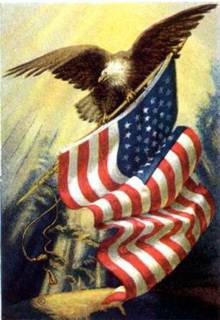






















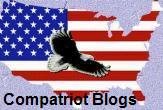



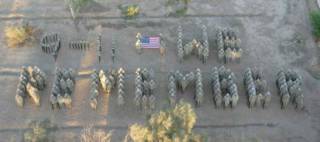
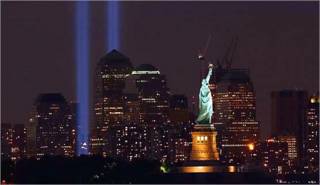








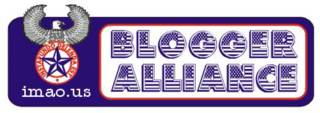
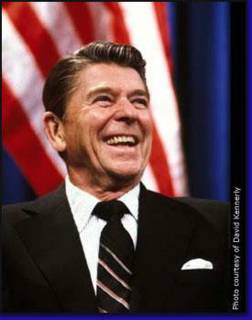
0 Comments:
Post a Comment
<< Home